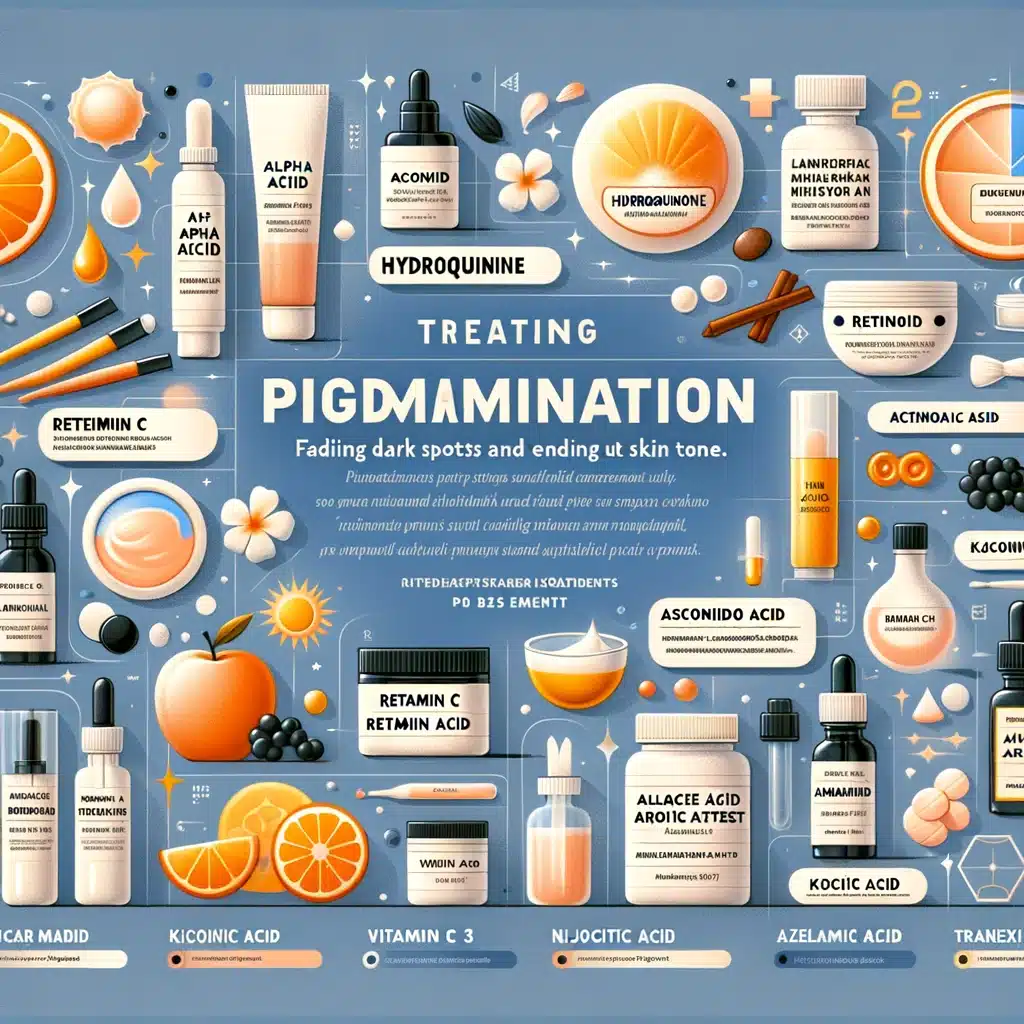
Ranking skincare ingredients by efficacy for treating pigmentation can be somewhat subjective and may vary depending on individual skin types and concerns. However, based on scientific research and dermatological recommendations, here’s a general ranking:
Hydroquinone
Inhibits melanin production and effectively lightens dark spots and hyperpigmentation.
Retinoids (Retinol, Tretinoin)
Promote cell turnover, reduce melanin production, and improve overall skin texture and tone.
Vitamin C (Ascorbic Acid)
Acts as an antioxidant, brightens the skin, and reduces the appearance of dark spots.
Alpha Hydroxy Acids (AHAs)
Exfoliate the skin, promote cell turnover, and fade hyperpigmentation.
Niacinamide (Vitamin B3)
Reduces melanin transfer, evens out skin tone, and strengthens the skin barrier.
Kojic Acid
Inhibits tyrosinase activity and lightens dark spots and pigmentation.
Licorice Extract
Contains glabridin, which inhibits tyrosinase and reduces melanin production.
Alpha Arbutin
Inhibits tyrosinase and lightens dark spots without the side effects associated with hydroquinone.
Azelaic Acid
Inhibits melanin production, reduces inflammation, and improves hyperpigmentation and acne.
Tranexamic Acid
Inhibits melanin production and has anti-inflammatory properties, making it effective for treating pigmentation and redness.
Each of these ingredients can be found in various skincare products, such as serums, creams, and treatments, and they can be used alone or in combination for enhanced efficacy. It’s important to patch-test new products and to incorporate them into a comprehensive skincare routine that includes sun protection for optimal results. If you have specific concerns about pigmentation, consider consulting with a dermatologist for personalized recommendations and treatment plans.
Learn more about our SKIN LAB
